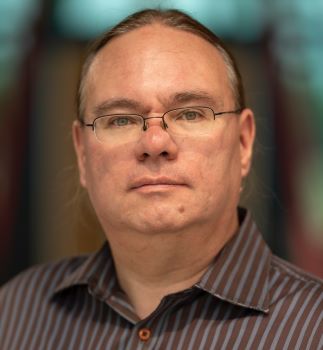We use cookies on this site to enhance your experience.
By selecting “Accept” and continuing to use this website, you consent to the use of cookies.

Webinar Presented By: Professor Edward Doolittle, First Nations Universtiy Canada
Speaker Bio: Edward Doolittle is Kanyen’kehàke (Mohawk) from Six Nations in southern Ontario. He earned a PhD in pure mathematics (partial differential equations) from the University of Toronto in 1997. He is currently Associate Professor of Mathematics at First Nations University of Canada, a federated college of the University of Regina, in Regina, Saskatchewan. Edward is a member of the Reconciliation and Mathematics committee of the Canadian Mathematical Society.
Abstract: Students in the residential school system, now known as Residential School Survivors, experienced an extraordinary level of mistreatment and abuse perpetrated by those in charge of the schools. The resulting legal action led to the Indian Residential Schools Settlement Agreement (IRSSA) in 2007, the largest class-action settlement in Canadian history, with $1.9 billion in damages paid to all former students (the Common Experience Payment) and an additional $3.1 billion paid for damages suffered beyond the norm. As part of the settlement, the IRSSA also established the Truth and Reconciliation Commission (TRC) to document and preserve the experiences of the survivors.
The TRC issued at set of 94 Calls to Action directed at Canadian governments and Canadians in general. Many of the Calls to Action are related to education. As Justice (now Senator) Murray Sinclair, chair of the TRC, has said, “Education has gotten us into this mess, and education will get us out.”
On December 15, 2015, the Canadian federal government committed to implementing the Calls to Action, which call for changes not only to the situation of Indigenous people in this country, but also to the relationship between Indigenous and non-Indigenous people.
As an example, in response to Call to Action 43, the Government of Canada has announced its full support of the United Nations Declaration on the Rights of Indigenous Peoples (UNDRIP). UNDRIP has the potential to cause far-reaching changes to Canadian legal and governmental frameworks, particularly those related to resource management, and ultimately changes to Canadian society. We all, even mathematicians, have a responsibility to learn about those changes so that we can prepare ourselves, our students, and our institutions.
Date and Time: February 17, 2022 | 2:30 p.m. (EST)
Location: Online
Free Event | All Welcome | Register Here
**Registration is required in order to receive the zoom link and passcode to attend this event. Once you are registered, you will receive a confirmation email containing information about joining the meeting**